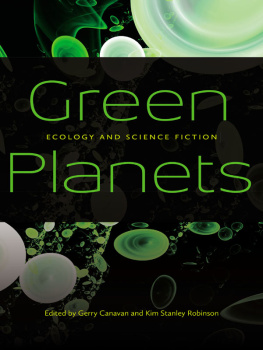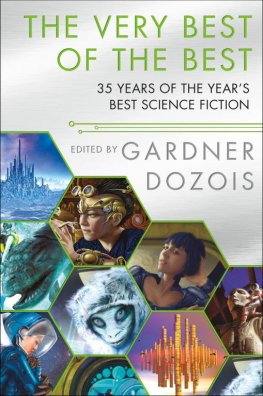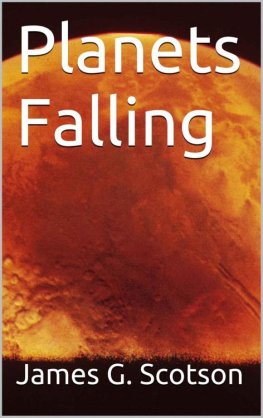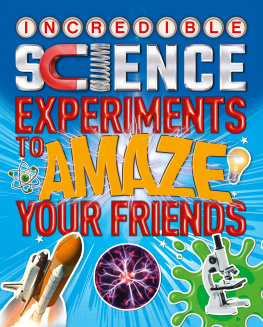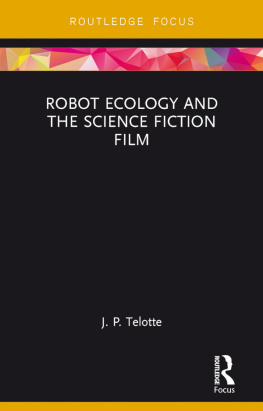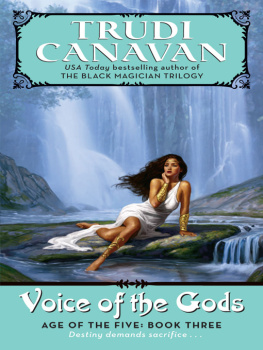Gerry Canavan (editor) - Green Planets: Ecology and Science Fiction
Here you can read online Gerry Canavan (editor) - Green Planets: Ecology and Science Fiction full text of the book (entire story) in english for free. Download pdf and epub, get meaning, cover and reviews about this ebook. year: 2014, publisher: Wesleyan, genre: Romance novel. Description of the work, (preface) as well as reviews are available. Best literature library LitArk.com created for fans of good reading and offers a wide selection of genres:
Romance novel
Science fiction
Adventure
Detective
Science
History
Home and family
Prose
Art
Politics
Computer
Non-fiction
Religion
Business
Children
Humor
Choose a favorite category and find really read worthwhile books. Enjoy immersion in the world of imagination, feel the emotions of the characters or learn something new for yourself, make an fascinating discovery.
- Book:Green Planets: Ecology and Science Fiction
- Author:
- Publisher:Wesleyan
- Genre:
- Year:2014
- Rating:4 / 5
- Favourites:Add to favourites
- Your mark:
- 80
- 1
- 2
- 3
- 4
- 5
Green Planets: Ecology and Science Fiction: summary, description and annotation
We offer to read an annotation, description, summary or preface (depends on what the author of the book "Green Planets: Ecology and Science Fiction" wrote himself). If you haven't found the necessary information about the book — write in the comments, we will try to find it.
Green Planets: Ecology and Science Fiction — read online for free the complete book (whole text) full work
Below is the text of the book, divided by pages. System saving the place of the last page read, allows you to conveniently read the book "Green Planets: Ecology and Science Fiction" online for free, without having to search again every time where you left off. Put a bookmark, and you can go to the page where you finished reading at any time.
Font size:
Interval:
Bookmark:

GREEN PLANETS
Green
Ecology and Science Fiction
Planets
Edited by Gerry Canavan and
Kim Stanley Robinson
WESLEYAN UNIVERSITY PRESS MIDDLETOWN, CONNECTICUT
Wesleyan University Press
Middletown CT 06459
www.wesleyan.edu/wespress
2014 Wesleyan University Press
All rights reserved
Manufactured in the United States of America
Designed by Mindy Basinger Hill
Typeset in Calluna Pro
Wesleyan University Press is a member of the Green Press
Initiative. The paper used in this book meets their minimum
requirement for recycled paper.
Hardcover ISBN : 978-0-8195-7426-8
Paperback ISBN : 978-0-8195-7427-5
Ebook ISBN : 978-0-8195-7428-2
Library of Congress Cataloging-in-Publication Data
available on request.
5 4 3 2 1
Title page and part title art: Brian Kinney | shutterstock.com
Cover illustration: Abstract art green stars backdrop on black background, Brian Kinney. Shutterstock.com
FOR THE FUTURE
PREFACE
As its title suggests, this volume was first inspired by Mark Bould and China Mivilles Red Planets: Marxism and Science Fiction. But where that book focused primarily on the long-standing connection between science fiction and political leftism, Green Planets takes up instead the genres relationship with ecology, environmentalism, and the emerging interdisciplinary conversation variously called ecocriticism, environmental philosophy, and the ecological humanities.
The oxymoronic combination of science and fiction in the term science fiction suggests in miniature the internal tension that drives analysis of the genre. Is science fiction primarily science (knowledge, fact, truth), or is it primarily fiction (whimsy, fantasy, lie)? Does the genre offer a predictive window into the world of a future that is soon to come, or does it instead merely reflect the assumptions, anxieties, and cultural preoccupations of its own immediate present? Its little wonder that for decades many writers and critics of science fiction have chosen to eschew the name science fiction entirely, preferring speculative fiction or (even more commonly) the ambiguous shorthand SF as a means of avoiding the problem of the science on which the genre is nominally based. In fact almost none of the fantastic, otherworldly tropes most closely associated with SF in the popular imagination are scientific in any meaningful sense; the physical laws of reality, as far as anyone can tell, prohibit all the best-loved plot devices, from hyperdrives to mutant superpowers to time travel to perpetual motion machines. Despite frequent pretensions to the contrary from fans and promoters of the genre, the popular designation of a text as SF still typically registers not its careful fidelity to current scientific understanding but rather the extremity of its deviation from what science tells us is true.
And yet, despite all the necessary caveats and disavowals, it cannot be denied that we find ourselves living in science fictional times. Waiting in a doctors office for the results of a genetic test that will tell her the true story of her own future, using a cheap handheld device that can in seconds wirelessly access a vast digital archive of all human knowledge, a person can effortlessly browse all the latest apocalyptic predictions about mankinds radical destabilization of the Its true that cars still dont flybut they have started to drive themselves.
Nowhere is the science fictionalization of the present clearer than in contemporary considerations of humanitys interaction with its environment, which frequently deploys the language and logic of SF to narrativize the dire implications of ecological science for the future. Fairfield Osborns Our Plundered Planet, published in 1948, briefly paused its ecological critique to wonder if perhaps there arent humanoids somewhere else in the universe treating their planet better than we treat ours; two years later Norbert Weiner, the father of cybernetics, took stock of energy scarcity and entropic breakdown to unhappily declare us shipwrecked passengers on a doomed planet in his The Human Use of Human Beings. The Spaceship Earth metaphor for discussing resource scarcity and sustainability has become so naturalized that most completely forget its origins in SF . Even now, contemporary debates over the reality of climate change and the urgent need for renewable forms of energy production still frequently break down into accusations that one party or the other is dabbling in science fiction, not science fact; implicit in this petty sniping is the concession that it is increasingly hard for us to tell the difference between the two. In many waysand many of them quite disturbing SF looks less and less like fiction at all, and something more like the thin edge of the future as it breaks into the present.
The authors of Green Planets: Ecology and Science Fiction share this foundational Here Suvin recasts that apparently hopeless contradiction between science/cognition and fiction/estrangement in much more positive terms: the estrangement of SF is an incredibly flexible artistic tool for disorienting and defamiliarizing the conditions of everyday life, opening up the mind to previously unimagined possibilities, while cognition functions as the reality principle that keeps our imaginations honest. The alienated view-from-outside offered by cognitive estrangement allows us to examine ourselves and our institutions in new (and rarely flattering) light; SF distances us from the contemporary world-system only to return us to it, as aliens, so that we can see it with fresh eyes. For Suvin, and for the generation of SF critics that followed, SF is thus at its core always about utopia: the dream of another world that wasnt just a hopeless fantasy, a glimpse of the better history that could actually be ours, if we would only choose to build it. Even the dystopian nightmares and secular apocalypses that so dominate contemporary SF point us, by negative example, in the direction of utopia: whatever else you do, dont do this.
Two decades ago, in the introduction to a collection of ecotopian fictions called Future Primitive, my coeditor Kim Stanley Robinson offered up a succinct description of the crisis facing the human race in our moment of technological modernity: We are gaining great powers at the very moment that our destruction of our environment is becoming ruinous. We are in a race to invent and practice a sustainable mode of life before catastrophe strikes us. Our civilization, Robinson goes on, consequently finds itself today in the throes of an incomprehensibly vast project of rethinking the future, a Herculean and vertiginous task that links political environmental movements and radical animal-rights activists to politicians to venture capitalists to organic farmers to freelance inventors to biologists to physicists to chemists to economists to ecofeminists to philosophers to literary critics to writers of SF . Indeed, the recognition of the immense planetary scale of ecological crisis, and the shocking inadequacy of our response thus far, extends the Suvinian interest in cognitive estrangement and utopian dreaming across the entirety of politics and culture todaynow the prerequisite for our collective survival. The future has gone bad; we need a new one.
For over a century the thought experiments of SF have been probing our possible futures, providing an archive of the imagination where science, story, and political struggle can converge and cross-pollinate. The ambition of Green Planets is to trace key moments in this vital and ongoing conversation.
Next pageFont size:
Interval:
Bookmark:
Similar books «Green Planets: Ecology and Science Fiction»
Look at similar books to Green Planets: Ecology and Science Fiction. We have selected literature similar in name and meaning in the hope of providing readers with more options to find new, interesting, not yet read works.
Discussion, reviews of the book Green Planets: Ecology and Science Fiction and just readers' own opinions. Leave your comments, write what you think about the work, its meaning or the main characters. Specify what exactly you liked and what you didn't like, and why you think so.

